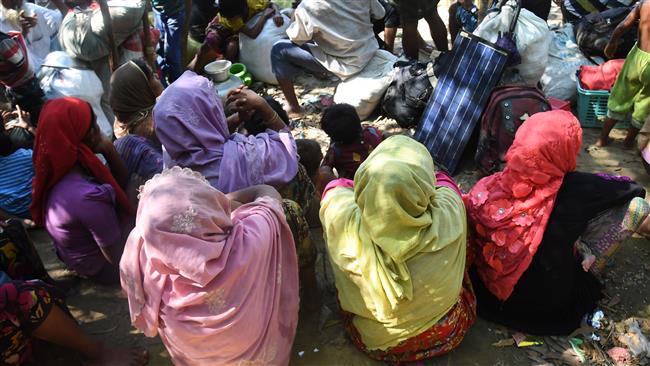
RNA - The IOM found that Rohingya refugee children working harsh hours for little pay in Bangladesh, with some suffering beatings and sexual assault.
Independent reporting by Reuters published by the news agency on Monday corroborated some of the IOM findings.
About 450,000 children, or 55 percent of the refugee population, live in overcrowded camps in Bangladesh after fleeing violence and persecution at home in Myanmar.
Most of the refugees have arrived in the past two and a half months after Myanmar’s military launched what was described by the UN as a “textbook example of ethnic cleansing” in Rohingya-majority Rakhine State.
The IOM’s findings are based on discussions with groups of long-term residents and recent arrivals, and separate interviews by Reuters and other groups and news outlets. The results show children were targeted by predators and, in many cases, encouraged to work by their poor parents amid widespread malnutrition and poverty in the camps.
Rohingya boys as young as seven years old were confirmed working outside the refugee camps on farms, construction sites and fishing boats, as well as in tea shops and as rickshaw drivers, the IOM and Rohingya residents in the camp reported.
Muhammad Zubair, aged between 12 to 14 years old from the Kutupalong camp, said he was offered 250 taka ($3) per day but ended up with only 500 taka ($6) for 38 days work on building roads.
“It was hard work, laying bricks on the road,” he said, recalling that he was verbally abused by his employers when he asked for more pay and told to leave.
Zubair then took a job in a tea shop for a month, putting in two shifts per day from 6 a.m. to past midnight, with a four-hour rest period in middle.
“When I wasn’t paid, I escaped,” he said. “I was frightened because I thought the owner, the master, would come here with other people and take me again.”
The girls at the refugee camps are typically employed as maids or nannies for Bangladeshi families.
One Rohingya parent, who asked not to be identified because she feared reprisals, told Reuters that her 14-year-old daughter had been working in Chittagong as a maid but fled her employers.
When she returned to the camp, she was unable to walk, her mother said, adding that her daughter’s Bangladeshi employers had physically and sexually exploited her.
The IOM has documented several similar cases in which female Rohingya refugees “experienced sexual harassment, rape and being forced to marry the person who raped her.”
Refugee parents, however, encourage their daughters to marry early, for protection and for financial stability, according to the IOM findings.
Some child brides are as young as 11, the IOM said.
Many women become “second wives,” the IOM said. They are frequently divorced quickly and “abandoned without any further economic support.”
One 21-year-old girl named Halima said she had been forced into prostitution by a local Bangladeshi man, who had vowed to marry her.
After arriving at his house in Cox’s Bazar she saw seven to eight young girls like herself. Halima told the BBC she was forced into sex after that.
“We’ve heard stories of people coming in and offering people, looking for orphans and saying, ‘We’ll take you to a safe place,’” Zia Choudhury, Bangladesh country director for the humanitarian group CARE, was quoted as saying by ABC News.
“[They’re] offering people jobs to go and work as cleaners or maids, and we know that those are organized gangs who are going to whisk these vulnerable people away and take them to some worse situation,” he added.
Kateryna Ardanyan, an IOM anti-trafficking specialist, said exploitation had become “normalized” at the refugee camps.
“Funding dedicated to protecting Rohingya men, women and children from exploitation and abuse is urgently needed,” the IOM specialist said.
The United Nations has also suggested funding an initiative to prevent exploitation.
UN Secretary General Antonio Guterres in New York on Friday called on Myanmar’s government to immediately cease the ongoing violence against the Rohingya and let them return to their ancestral homeland.
847/940